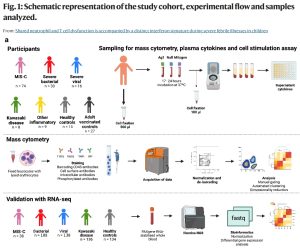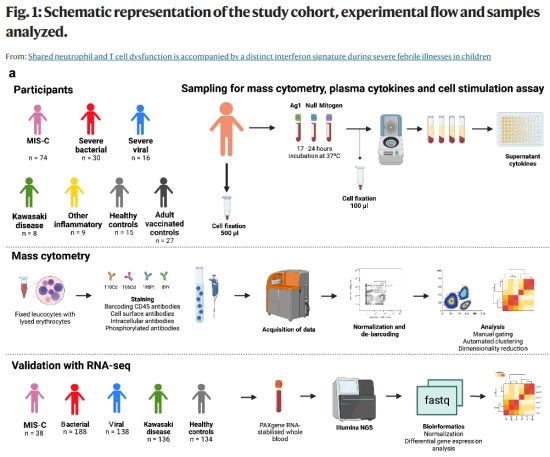A collaborative study, spearheaded by DIAMONDS consortium in King’s College London alongside Imperial College London and the University of Edinburgh, has revealed critical insights into immune dysfunction in children with severe infections and inflammatory diseases, such as multisystem inflammatory syndrome (MIS-C), severe bacterial infections, and Kawasaki disease.
Published in Nature Communications, the research involved an extensive analysis of immune cell profiles in 128 children, revealing key abnormalities in immune response.
These findings offer new potential for developing targeted therapies to improve outcomes for affected children.






